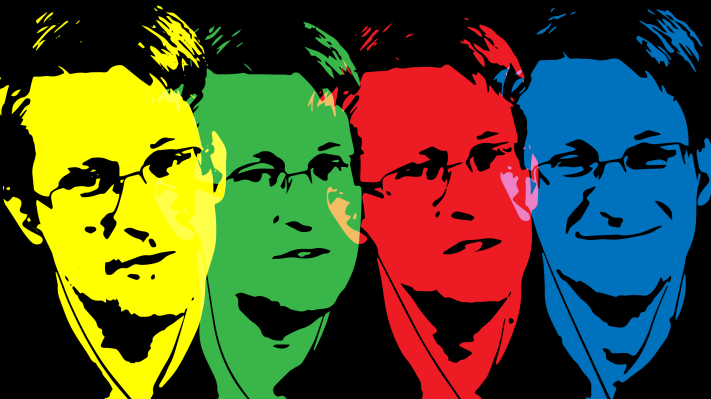Twitter CEO Jack Dorsey interviewed Edward Snowden today, and the big topic was technology.
During the Q&A (which was broadcast live from the Pardon Snowden Periscope account) Snowden discussed the data that many online companies continue to collect about their users, creating a “quantified world” — and more opportunities for government surveillance.
“If you are being tracked, this is something you should agree to, this is something you should understand, this is something you should be aware of and can change at any time,” he said.
Snowden acknowledged that there’s a distinction between collecting the content of your communication (i.e., what you said during a phone call) and the metadata (information like who you called and how long it lasted). For some, surveillance that just collects metadata might seem less alarming, but in Snowden’s view, “That metadata is in many cases much more dangerous and much more intrusive, because it can be understood at scale.”
He added that we currently face unprecedented perils because of all the data that’s now available — in the past, there was no way for the government to get a list of all the magazines you’d read, or every book you’d checked out from the library.
“[In the past,] your beliefs, your future, your hopes, your dreams belonged to you,” Snowden said. “Increasingly, these things belong to companies, and these companies can share them however they want, without a lot of oversight.”
He wasn’t arguing that companies shouldn’t collect user data at all, but rather that “the people who need to be in control of that are the users.”
“This is the central problem of the future, is how do we return control of our identities to the people themselves?” Snowden said.
That might seem to be overstating things, but when asked about the “normalization” of government surveillance, Snowden suggested that the issue goes beyond surveillance: “What we’re actually talking about is democracy, what we’re talking about is civil empowerment.” Specifically, he said there’s “an increasing imbalance of power” where public officials know more and more about private citizens, while those citizens know less and less about the officials: “We can’t even see their tax returns.”
At the same time, he suggested that technology presents opportunities for freedom and empowerment that go beyond any one country. Yes, he said, “the law is important” (a previous interview where Snowden seemed to downplay the weight of laws and politics prompted Gizmodo’s Matt Novak to describe him as a “fucking idiot“) but he added, “We need to think about things not just in the national context, not just in the local context, but in the global context.”
“Can we correct things in the United States without correcting them for everyone else in a lot of contexts?” he asked. “No — but in the context of technology, maybe.”
For example, he said that if someone built encrypted communication technology that “that can’t be intercepted, that can’t be censored, that can’t be controlled, that can go anywhere on Earth,” they would be helping to create a “fabric of freedom” across the globe.
Snowden covered another hot topic — fake news. He criticized the idea of having companies like Google and Facebook take down offending content (whether that’s fake news or posts that support terrorists), because many countries have highly restrictive, or downright oppressive, rules around free speech.
“The problem of fake news isn’t solved by hoping for a referee, but rather because … we as users of these services help each other,” he said. “We talk and we share and we point out what is true. The answer to bad speech is more speech. We have to exercise and spread the idea that critical thinking matters now more than ever.”
Not everything in the interview was quite so heavy, by the way. Snowden also offered some product feedback for Dorsey — he’d like to be able to edit tweets. Should we expect that to actually happen? Well, Dorsey responded by moving along to the next question without comment, so make of that what you will.
If you missed @Snowden‘s live Q&A with @jack, don’t fret! You can watch it here: https://t.co/slh5mO1Bhi
— Pardon Snowden (@PardonSnowden) December 13, 2016
